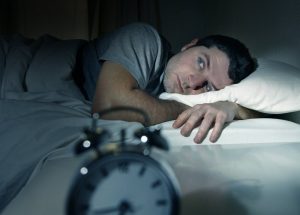 Do you wake often in the middle of the night for what seems to be for no reason at all? Perhaps you find yourself waking up to use the bathroom, even if you went before bed already. Maybe your significant other can’t take your snoring anymore and has to move to the other room to sleep uninterrupted. If these situations sound familiar, you may have sleep apnea in Plano and need treatment.
Do you wake often in the middle of the night for what seems to be for no reason at all? Perhaps you find yourself waking up to use the bathroom, even if you went before bed already. Maybe your significant other can’t take your snoring anymore and has to move to the other room to sleep uninterrupted. If these situations sound familiar, you may have sleep apnea in Plano and need treatment.
Since sleep apnea can be difficult to diagnose, you’ll also want to consider these factors.
Over the Age of 40 and Have Diabetes? Keep Reading
According to recent studies reported by U.S. News and World Report, 50 percent of patients with diabetes also have obstructive sleep apnea. Other research puts it as high as 60 to 80 percent, so if you have diabetes, it’s no surprise to your doctor if sleep apnea accompanies it. In some cases, diabetes isn’t discovered until after the sleep apnea is found to begin with!
One of the most common forms of sleep apnea is obstructive sleep apnea, or OSA. This occurs when a blockage in the back of the mouth, usually the tongue or soft palate, blocks the airway during sleep. When the airway is blocked, it causes blood pressure to rise and triggers a stimulus to the brain telling the body to wake up, leading to coughing, gasping, and often a poor night’s sleep.
Additionally, interrupted sleep causes an increased stress response, making it difficult for the body to keep proper sugar levels under control. If you’re over 40 years of age, your risk for developing sleep apnea goes up even higher. That means it’s essential that you take note of the following symptoms for sleep apnea and inform your doctor if they occur.
Other Signs of Sleep Apnea
In most cases, snoring is a telling symptom of patients with sleep apnea. With that being said, it’s not the only factor to consider. Other symptoms of sleep apnea include:
- Chronic fatigue during the day
- Trouble sleeping throughout the night
- Headaches upon waking
- Waking up and gasping for air
- Choking while sleeping
- Frequent urination
- Changes in mood or depression that won’t respond to medication
Patients who are obese also see an increased risk due to excess weight around the neck interfering with the airway, causing breathing problems.
How to Get Treated
If you suspect you have sleep apnea, speak with your doctor about your snoring in Plano, as well as your other symptoms. They can perform a sleep study to create the most accurate diagnosis possible. Once this is determined, your doctor will go over your options. These typically include:
- The Continuous Positive Airway Pressure machine (CPAP) – Considered to be the gold standard for treating sleep apnea, this device administers air through a nasal mask that’s worn while asleep. It forces air into the mouth and keeps you asleep through the night.
- An Oral Appliance – This device works by shifting the position of your jaw, removing any blockages and allowing air to flow through properly.
In some cases, a combination of both these devices may be necessary, but you won’t know for sure until you get your sleep apnea in Plano treated!
About the Author
Dr. Keane Fedosky earned his DDS degree from the Baylor College of Dentistry and has been practicing for over 20 years. He is dedicated to the treatment of sleep apnea and snoring and is also a member of the American Academy of Dental Sleep Medicine. To learn more about his practice, contact him through his website.
